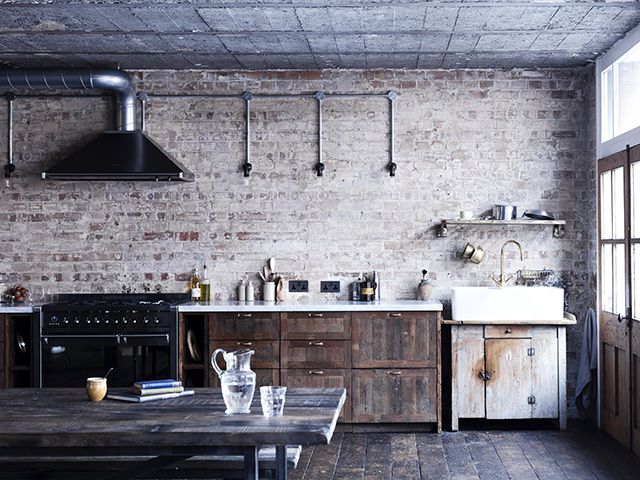How to get the most from your construction project
The Chartered Institute of Building (CIOB) provides advice to homeowners planning refurbishments and new builds
PROMOTIONAL FEATURE
If you’re getting ready to start a home renovation, extension, or even a full-on self-build, you’re probably already feeling a mix of excitement and stress. It’s a big deal—and a big investment—so it’s important to start on the right foot to set up your project for success.
Recently, the Chartered Institute of Building (CIOB) shared their top tips in a series of talks at Grand Designs Live in May.
If you missed their talks, don’t worry—they have summed up the key advice for Grand Designs Magazine readers, to help you avoid common pitfalls and get the most out of your project.
Start with a clear vision
Before you delve into the details, take time to reflect on what you want to achieve. What’s the purpose of your project? Is it to create more space, modernise your home, or build your dream house from scratch? Think about how the spaces will be used and the overall design style and materials. Write it all down.
It’s also helpful to figure out what’s non-negotiable (maybe you must have that home office or energy-efficient heating system) and what you’re willing to compromise on if money gets tight. Having this clarity early on will guide your decisions and help you stay focused when challenges come up.

Photo: Appledown Projects
Be realistic about your budget
Let’s talk money. Budget certainty is all the more important during a cost-of-living crisis and achieving long term value for money is a priority.
Budgeting might not be the most fun part of planning a build, but it’s absolutely essential. Start by setting a realistic budget—not just for the main build, but for everything. That includes the cost of the planning application, professional fees, utility connections and VAT.
It’s sensible to add a contingency too —usually about 10% of your budget—to cover unexpected costs. Construction projects carry risk and unexpected situations are possible. If you’re not sure how to put a budget together, it’s worth speaking with a Chartered Quantity Surveyor, who can help you.
Resist making changes late in the game. Changing your mind on design details once building has started can seriously add to your costs.
Choose the right people
When it comes to hiring builders or contractors, personal recommendations can be really useful. But get quotes from at least three different builders and make sure they’re all working from the same set of plans. That way, you can compare like-for-like, rather than trying to guess why one quote is cheaper (or more expensive) than the others.
Remember: cheapest doesn’t always mean best. Look for value—good quality finishes, clear communication, and experience with similar projects.
Wherever possible, hire Chartered professionals. These are individuals or companies who’ve been independently assessed and approved by their professional association, such as CIOB, so you know they meet high standards. You can find a directory of CIOB Chartered Companies on the CIOB’s website.

Photo: Barr Group/Lucy Walters
Always get it in writing
No matter how well you know your builder, always use a written contract. This protects both you and them and avoids any misunderstandings later on. A good contract should cover:
- Start and end dates
- Costs and payment schedule
- Health and safety responsibilities
- Site tidiness and waste removal
You can find simple contract templates online, and most reputable builders will expect to work this way. Check that it includes an agreement that the builder will return after the work is done to fix any final snags before you pay the last instalment.
Know your legal responsibilities
Even if you’re hiring professionals, you, the client, are still legally responsible for some aspects. These include making sure the site is safe and that sufficient insurance is in place.
Don’t be afraid to ask questions – an informed client is a good client.
Take your time and do it right
Linda Stevens, CIOB Head of Client Development, says that getting the basics right early on—things like hiring qualified professionals, setting a sensible budget, and putting a contract in place —can make a huge difference to how your project turns out.
As tempting as it is to jump straight in, taking the time to do proper planning really pays off. Rushing in can lead to delays, budget overruns, and adds unnecessary stress.

Photo: Genevieve Girling
Builders appreciate well-prepared clients
According to Jack Hounsham from Appledown Projects, a CIOB Chartered company, builders love working with homeowners who know what they want and have things clearly set out in writing. It keeps the whole project running more smoothly and leads to better outcomes for everyone.
Stuart Barr of Barr Group, also a Chartered company, added that a good builder will take the time to go through the details of your project and give you a clear, honest quote. They’ll also ask questions to make sure they understand your expectations, which helps set realistic timelines and avoid unpleasant surprises.

Find out more
Taking on a construction or renovation project is a big commitment, but with the right planning, the right people, and a clear plan, you’ll be well on your way to creating a home you love.
Visit www.ciob.me/homeowners for all CIOB’s advice, including an easy-to-use directory of chartered companies.
(Lead Image: Genevieve Girling)



